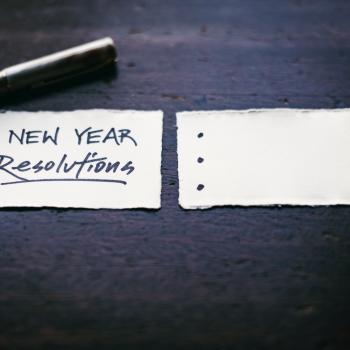It is very difficult for a person to truly consider the perspective of others. Since truth lies somewhere in between my perspective and others’, this fact can make discovering truth much more elusive.
I Know, You Know
My brother is a big fan of the German soccer team. He had a game recorded on DVR with plans to watch later in the day. As we were watching the exciting ending to the game, Germany scored in the final minutes and we fought the urge to tell my brother what had happened. My wife sent him a text that said, “I know who wins”.
So, what’s the problem? She didn’t tell him the result. But what she did do was hint that there was a winner. The game was tied up until that last minute.
This kind of things happen all the time in the world of live sports. I’ve had people text me “Exciting game!” when I am watching the eight inning of a recorded baseball game, the score is 5-0. This hints that there is a comeback in the works because from my perspective the game is not at all exciting.
Once we acquire knowledge, it is difficult for us to fully understand what it is like to not have this knowledge. We assume a perspective where everyone understands the angles from which we are viewing things.
The Dangers
What if we happen to be wrong? The sports example is easy and straight forward enough. But most of life’s knowledge doesn’t work this way. It is messier, less certain. What happens when we are so sure of the truth and assume a worldview where everyone agrees with the way we see things, but then it turns out we are wrong?
It happens every day. We are trying to tell a story about a coworker, filling in the gaps to describe their motivations. But what if our read is wrong? What if what we assume we know turns out to be false?
This becomes a massive barrier for communication – the assumption of knowledge. When we assume a truth and the people we converse with assume conflicting truths, it can seem as though we are speaking different languages. Or we get something like a classic sitcom scene where one party thinks the conversation is about one thing (say sex for example) and the other thinks it is about something else (maybe ordering office supplies). The former hears innuendo in everything being spoken while the latter hears practical steps to buying paper.
A Little Chat
Like most problems with relationship and perspective, the cure is to have a direct an open conversation. To seek clarity by measuring your perception with those around you.

Talk about what you are hearing when someone speaks (it isn’t always what they are saying). Name values that feel threatened. Compare notes of knowledge to make sure they align.
The curse of knowledge leads to a lot of avoidable conflict. And we enter into that conflict confused and offended as we are making some pretty ambitious assumptions. We assume everyone understands our best intentions. We assume anyone in conflict with us is out to victimize us.
This is why people have such a hard time not posting sports scores to social media or shouting the answer when a group of friends is trying to figure out what else that actress is in. We like to know. We like to be the ones with unique and superior knowledge. Our insecure selves are seeking validation by piling on the evidence of our own intellect.
But knowledge can be a curse when it comes to relationships. We fight for being right more than we fight to love. Knowledge becomes a curse when we forget two things. First, that we never have a monopoly on it. And second, it is not just acquiring it, but stewarding it that determines knowledge’s worth.












